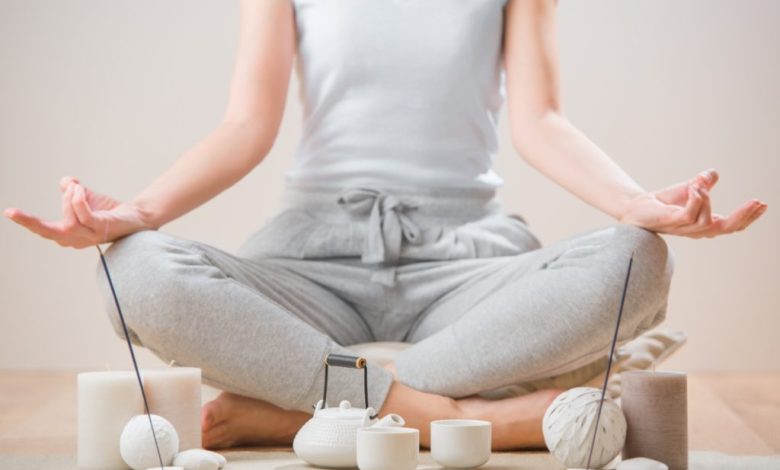From Yoga to Herbal Teas: Building a Holistic Routine for Better Health

Living with a long-term health condition such as polycystic kidney disease (PKD) can feel overwhelming. While prescribed treatments remain essential, many people find comfort in building a holistic daily routine that supports both body and mind. Holistic health does not replace medical advice but works alongside it, helping you feel stronger, calmer, and more in control of your wellbeing. Small, consistent changes—such as gentle movement, breathing exercises, balanced meals, or a calming herbal tea in the evening—can make a meaningful difference.
Practical ways to create a holistic routine, with a particular focus on how practices like yoga, herbal teas, nutrition, and lifestyle habits can support kidney health. It also highlights how PKD herbal treatment can fit into a broader approach to self-care. Whether you are newly diagnosed or looking to refine your existing routine, these strategies may help you feel healthier and more balanced.
1. Why Holistic Routines Matter
A holistic routine addresses more than physical health. It takes into account mental wellbeing, emotional resilience, diet, movement, rest, and natural remedies. For people managing chronic conditions like PKD, this approach offers a way to support kidney function, reduce stress, and improve overall quality of life.
- Mind and body connection: Stress and anxiety can worsen symptoms. Practices such as meditation, yoga, and mindful breathing reduce tension and support healthy blood pressure.
- Nutrition and herbs: Food and natural remedies provide vital nutrients and support for the kidneys.
- Movement: Safe, regular physical activity helps improve circulation, energy levels, and flexibility without straining the kidneys.
- Rest: Quality sleep helps the body repair and recharge, which is essential for anyone living with chronic illness.
By bringing these areas together, you create a daily routine that builds resilience rather than simply managing symptoms.
2. Gentle Movement: Yoga and Exercise for Kidney Health
Movement does not need to be vigorous to bring health benefits. For people with PKD, gentle and consistent exercise is often safer and more effective than pushing the body too hard. Yoga is particularly well-suited because it combines physical stretches with breathing exercises and relaxation.
Benefits of Yoga for PKD and General Health
- Improves flexibility without overloading the joints or muscles
- Encourages better posture and circulation
- Reduces stress through controlled breathing and mindfulness
- Helps regulate blood pressure, which is important for kidney health
Simple poses such as Cat-Cow, Child’s Pose, and Supine Twist stretch the spine, relax the abdomen, and calm the mind. Even ten minutes of daily yoga can bring noticeable benefits.
Other Exercise Options
- Walking: A low-impact way to maintain cardiovascular health
- Swimming: Gentle on the body, supportive for those with back or joint discomfort
- Pilates: Strengthens the core muscles and improves posture
- Tai Chi: Slow, flowing movements that encourage balance and mental focus
Always check with your healthcare provider before starting new activities, especially if you have advanced PKD or other health concerns.
3. Herbal Teas and Kidney-Friendly Drinks
Hydration plays a crucial role in kidney health. Water remains the best choice, but many people enjoy adding herbal teas for their soothing qualities and potential health benefits. Certain herbal teas may gently support kidney function and reduce inflammation.
Popular Herbal Teas for Wellbeing
- Chamomile Tea: Known for its calming effects, it supports relaxation and sleep.
- Ginger Tea: Helps digestion and reduces nausea, sometimes experienced by people with kidney conditions.
- Nettle Leaf Tea: Traditionally used for kidney support, though it should be used with caution and medical guidance.
- Green Tea: Provides antioxidants that may reduce oxidative stress.
If you are exploring Herbal Treatment for Polycystic Kidney Disease, teas can be a safe and enjoyable starting point. However, not all herbs are suitable for people with kidney issues. Some may interact with medications or place extra strain on the kidneys, so it is vital to consult your doctor or a qualified herbalist.
4. Nutrition: Eating with Care and Awareness
Food is central to any holistic routine. For PKD and kidney health in general, diet can directly influence how well the kidneys function.
Key Principles for Kidney-Friendly Nutrition
- Balanced protein: Too much protein can strain the kidneys. Choose moderate amounts of lean protein such as fish, poultry, or plant-based sources.
- Low sodium: Excess salt raises blood pressure, which can speed up kidney damage. Focus on fresh foods instead of processed or packaged meals.
- Adequate hydration: Water supports kidney filtration, but your healthcare provider may recommend specific limits depending on your condition.
- Fresh fruits and vegetables: Packed with vitamins and minerals, they support overall health. However, some with advanced kidney disease may need to limit potassium-rich foods such as bananas and oranges.
- Healthy fats: Olive oil, avocados, and nuts provide essential fatty acids for heart and kidney health.
Keeping a food diary can help you track how your body responds to certain foods. A dietitian specialising in kidney disease can also offer personalised advice.
5. Supplements and Natural Remedies
Many people managing PKD are interested in natural approaches alongside prescribed treatment. While supplements cannot cure the disease, some may support kidney health, reduce inflammation, and ease symptoms.
Examples include:
- Omega-3 fatty acids: Found in fish oil, they support heart and kidney health.
- Vitamin D: Important for bone strength and immune function, often recommended for people with chronic kidney disease.
- Antioxidants: Such as vitamin C and E, may help reduce oxidative stress in the kidneys.
Some herbal supplements are also promoted as Natural Remedies for Polycystic Kidney Disease, though research is ongoing. Always choose high-quality products and check with your healthcare provider before starting anything new.
For those exploring Supplements for Polycystic Kidney Disease, combining safe, evidence-based options with lifestyle measures can offer the best support.
6. Stress Management and Emotional Wellbeing
Living with PKD brings not only physical challenges but also emotional ones. Worry about the future, changes in daily routine, and the burden of symptoms can all affect mental health. A holistic routine should therefore include strategies to manage stress.
Practical Stress-Relief Techniques
- Mindful breathing: Spend five minutes focusing on slow, deep breaths.
- Meditation apps: Guided sessions can help you relax at home.
- Journalling: Writing down thoughts and feelings provides clarity.
- Creative hobbies: Art, music, or crafts encourage expression and relaxation.
- Spending time in nature: A short walk outdoors can lower stress levels.
Many people find that combining yoga with mindfulness practices provides a powerful way to balance emotions and physical health.
7. Sleep as a Healing Tool
Quality sleep is often overlooked but essential. During sleep, the body repairs tissues, balances hormones, and restores energy. People with kidney disease sometimes struggle with sleep due to discomfort, medication side effects, or stress.
To improve rest:
- Keep a consistent bedtime routine.
- Limit caffeine and screen time in the evening.
- Make the bedroom cool, dark, and quiet.
- Use relaxation techniques before bed, such as herbal tea or gentle stretches.
Improving sleep habits may enhance both kidney health and overall wellbeing.
8. Creating Your Personal Holistic Routine
Everyone’s needs differ, but the following framework can help you build a routine that feels realistic and supportive:
Morning
- Drink a glass of water on waking
- Gentle yoga or stretching for 10–15 minutes
- A balanced breakfast rich in fruits and whole grains
Afternoon
- A short walk or light activity
- Herbal tea instead of coffee
- Balanced lunch with lean protein and vegetables
Evening
- Prepare a kidney-friendly dinner
- Herbal supplement (if prescribed or recommended)
- Relaxation practice such as mindful breathing or journalling
Before Bed
- Herbal tea such as chamomile
- Read or listen to calming music
- Consistent bedtime for restorative sleep
By repeating these steps, you create stability and balance in your day, making it easier to manage PKD and improve wellbeing.
9. Working with Professionals
Building a holistic routine does not mean working alone. A strong support team helps you stay safe and motivated. This may include:
- Nephrologists and GPs: For medical advice and monitoring kidney function
- Dietitians: To adjust diet based on your stage of kidney disease
- Herbalists: For safe use of natural remedies
- Yoga instructors: To adapt poses for your condition
- Counsellors or support groups: To manage emotional challenges
Holistic health works best when combined with expert guidance.
10. Moving Forward
Creating a holistic routine is a personal process. It begins with small, steady steps—adding a short yoga session, replacing one coffee with herbal tea, or keeping a consistent bedtime. Over time, these habits combine to create meaningful improvements in how you feel.
For those living with PKD, exploring options such as Herbal Treatment for Polycystic Kidney Disease, safe Supplements for Polycystic Kidney Disease, and gentle lifestyle practices may help improve daily comfort and overall health. Always remember: these practices support, but do not replace, your prescribed treatment.
Conclusion
From yoga mats to herbal tea cups, the small choices you make each day influence your wellbeing. A holistic routine is not about perfection but about balance. By combining movement, nutrition, herbs, rest, and emotional care, you give your body and mind the best chance to cope with the challenges of PKD or other chronic conditions.
The key is consistency. Whether you are starting with a few gentle stretches, enjoying a calming cup of nettle tea, or adjusting your diet to be more kidney-friendly, each step matters. Over time, these habits become part of a supportive lifestyle that keeps you stronger, calmer, and more connected to your health.




